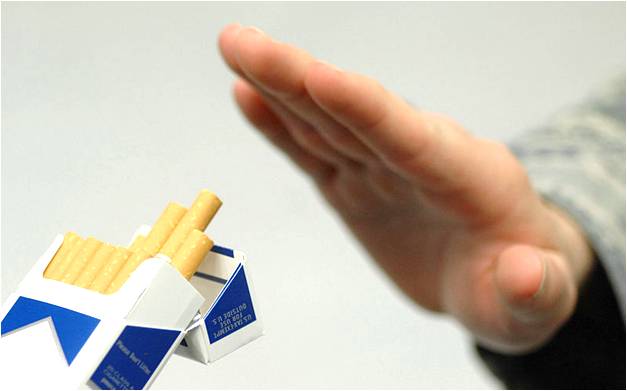This post is also available in Dutch.
Have you ever tried to break a bad habit? No matter what it is – nail biting, smoking, or drinking – you have probably experienced difficulty in breaking them. Even when we succeed, these bad habits are strong and often return to challenge us once more. Stressful situations appear to be especially powerful when it comes to reactivating old habits. Why is this?
 U.S. Air Force illustration by Airman 1st Class Brittany Perry [Public domain], via Wikimedia Commons
U.S. Air Force illustration by Airman 1st Class Brittany Perry [Public domain], via Wikimedia Commons
We can think of habits as well-learned responses towards specific cues. For example, if a smoker sees a packet of cigarettes [a cue], he may feel the urge to smoke and give in to this urge [the response]. These remembered habits are very strong and can feel “automatic”: even though a smoker may not explicitly want to smoke right now, he still lights a cigarette, because the response is automatically activated when seeing the packet. In the brain, these responses are learned by a structure called the dorsal striatum, which resembles an autopilot that can initiate responses without conscious control.
Multiple memory systems
We also have other memory systems in place that are less automatic. For example, our hippocampus is at work when we learn various things such as school subjects, a new language, or when we experience an event, all of which can be explicitly access and recalled when we need them. In this manner, the hippocampus is a memory system that is more flexible than the rigid habit system. This flexibility, however, comes at a cost because the hippocampus requires more cognitive resources, it is more “demanding”.
Stress shifts memory systems
Encountering stressful situations changes the balance between these memory systems. While we often rely on this flexible system, stress tips the balance towards autopilot, and thereby employs the rigid habit system. This is often beneficial because it allows us to respond quickly and escape from stressful (or even threatening situations). Furthermore, this tipping of the scale can reduce the use of our cognitive resources which are usually limited in stressful situations. Despite the benefits of the rigid habit system, the problem is that bad habits are also stored in this system and stress-related activation of bad habits, such as smoking and nail biting, is unhelpful.
A receptor controlling memory systems
In my PhD, I investigated the mechanism underlying this stress-induced shift in memory balance. The hormone cortisol plays an important role in our response to stress and it can affect communication in the brain by binding to receptors on nerve cells. We found that when we temporarily blocked the so-called mineralocorticoid receptor for cortisol, stress did not make our participants shift from the flexible to the habit memory system. Therefore, this receptor appears to orchestrate the stress-induced shift between memory systems.
We showed that our participants acted less automatically in a computer task. The upcoming and possibly more important question is whether blocking this receptor can also prevent the shift in individuals who smoke, or those who suffer from other addictions. If this is the case, the mineralocorticoid receptor may be a promising target to develop new treatments for these diseases.
This blog was written by Susanne and can also be read in Dutch. On Friday September 18, Susanne will defend her doctoral thesis entitled ‘The runner-up: on the role of the mineralocorticoid receptor in human cognition’, which covers this research.
Edited by Lieneke.
